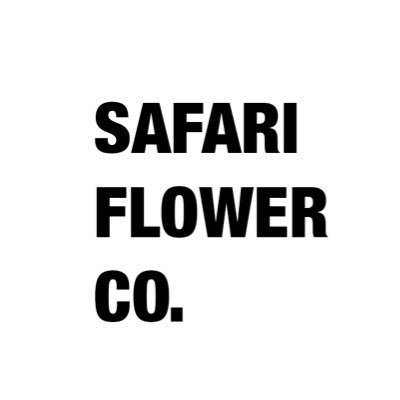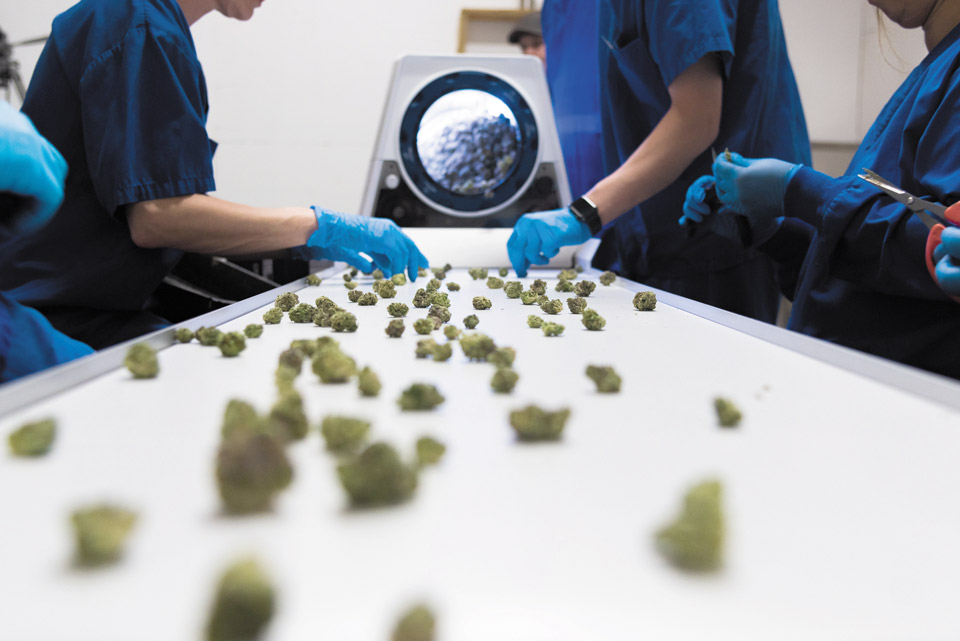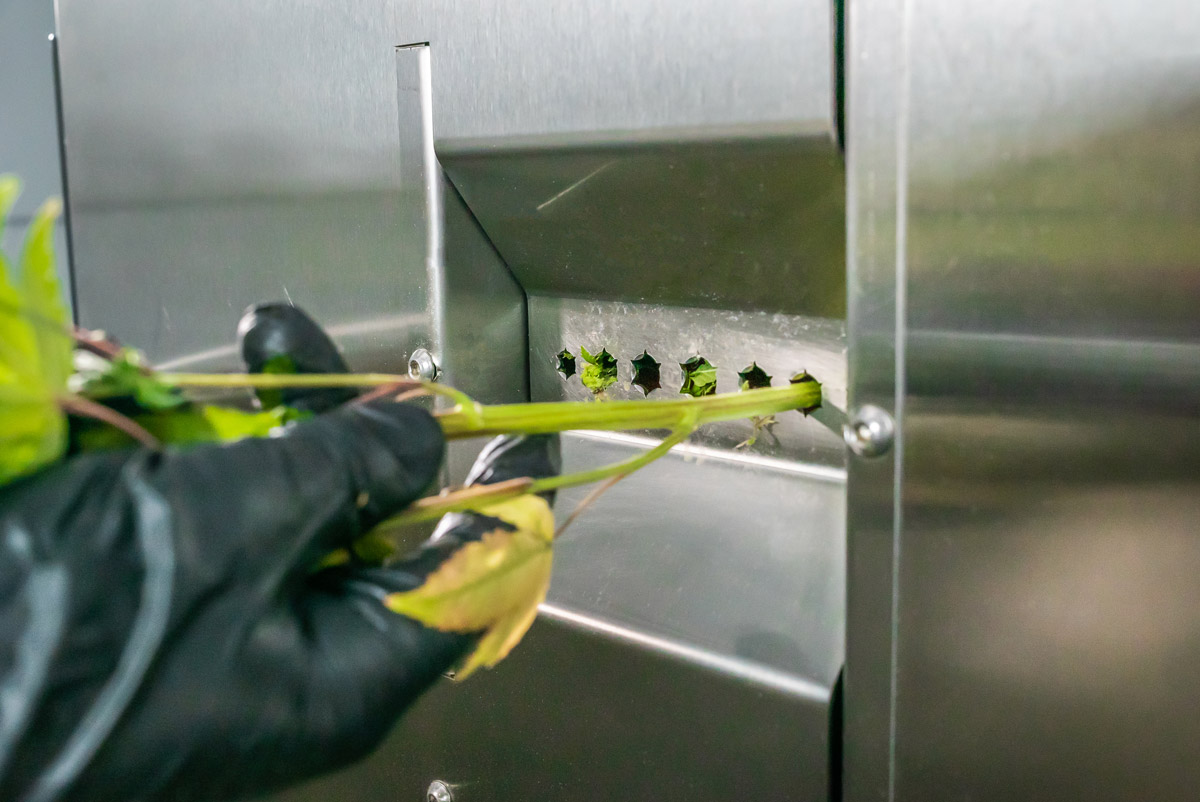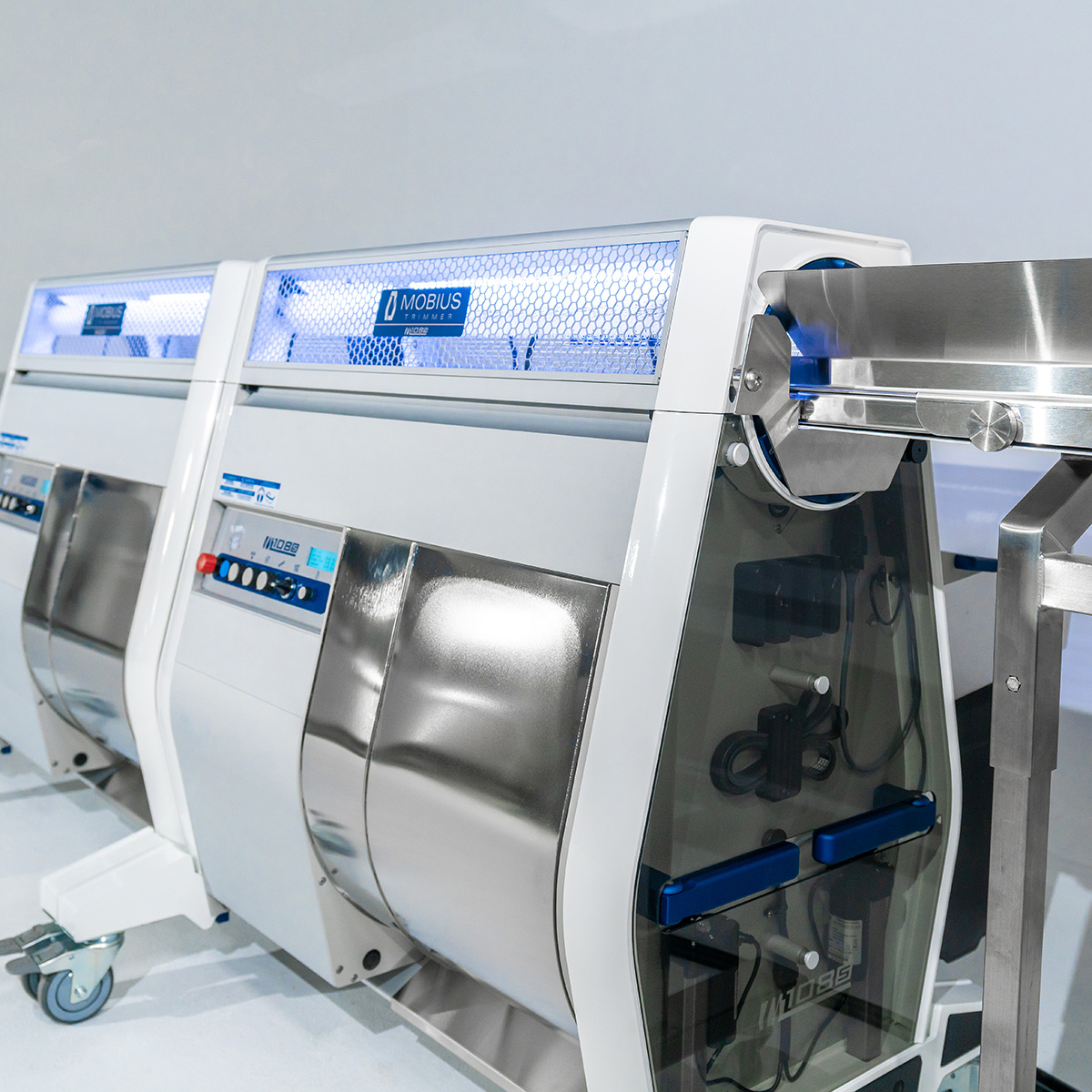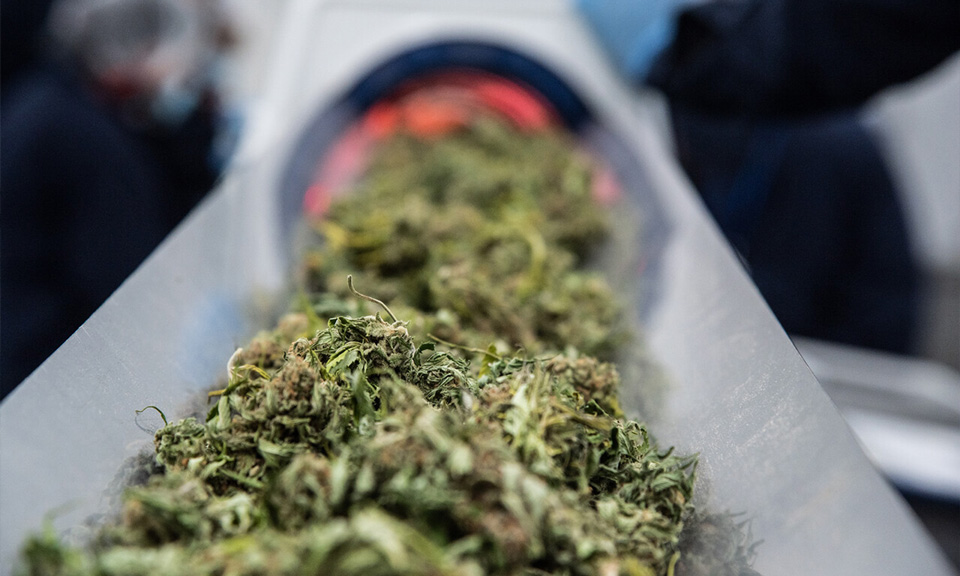Safari Flower Co.
Safari Flower Co. is the premier provider of indoor-grown cannabis for white-label brands across Canada. With a special emphasis on distinctive, “untamed” cultivars, Safari’s cannabis growers seek to satisfy connoisseurs’ tastes while maintaining high production volumes and a positive employee experience.
Top level details:
- Large Frequent Harvests: 1,500-1,600 plants coming down multiple times per week
- Energy-efficient Indoor Cultivation:
- 59,000-square-foot box-in-box style space
- 1.992 MW Cogen and hydronic climate control system
- Certifications: Operations certified under GACP standards for international sales
- Legacy Processing Method: Machine bucking (wet) and hand trimming (dry)
- Product: Potent dry flower with a full genetic expression of terpenes
THE SOLUTION
Safari aims to produce high-quality craft flower at scale in a very rapid grow cycle. The only way to do that is by bringing automation into the equation.
—
BRIGITTE SIMONS
CEO, Safari Flower Co.
Safari discontinued hand processing in favor of a suite of Mobius automated post-harvest processing equipment. Their set-up includes
- 1 Mobius MBX Bucker
- 2 Mobius M108S Trimmers
- Mobius conveyors; 1 infeed, 2 outfeed
The M108S trimmers are lined up in tandem, resulting in processing speeds of up to 120 kilograms (260 pounds) per hour of wet material, and the two outfeed conveyors in an L-shaped configuration allow for superior quality control, close material inspection, and detailed manicuring. By implementing this new process, Safari can now produce a consistent, uniform trim while maintaining the quality and integrity of their potent trichome heads.
The automation system is much faster than the manual alternative and therefore requires fewer man-hours per kilogram of final product, which significantly reduces labor-related costs. This has allowed Safari to employ fewer people in the processing room, minimizing product contamination, employee turnover, and repetitive strain injuries while also improving working conditions and overall company culture.
Improving Employee Retention
As expected, Safari achieved dramatic reductions in the amount of time and money spent on processing their cannabis plants. They also achieved their goal of getting product to market in a much shorter period of time.
“In the hand-care process, we had been examining harvest-sales cycles over 60 days,” said Simons. “Now, moving to automation, we’ve been able to move our harvest-to-sales eligibility in a cycle of 30 days or less.”
With less manual labor and residency time in the facility, harvests generate quicker revenue, essentially freeing up capital and making Safari more flexible — as well as profitable.
A healthier cash flow has enabled Safari to reinvest in staff bonuses and better-scheduled time off while still achieving their overall business goals. And because the new equipment introduces a degree of professional development into employees’ work lives, they also feel more loyalty to the company.
If you can give your employees technology that brings value back to the operators, you will have a sustainable, committed workforce that will come every day with dedication to your efficiency measures.—BRIGITTE SIMONS
